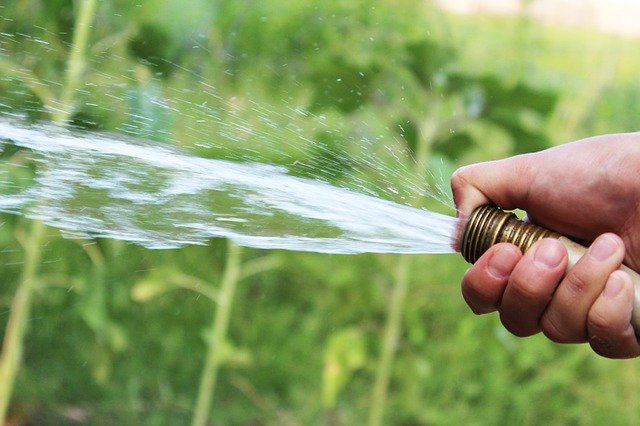
There's a huge push for homeowners to make eco-friendly decisions as we move into 2023. A lot of us are facing a hike in energy and food prices, and looking for ways to reduce, reuse and recycle. We're sure that many of you have been saving food scraps and putting them into compost for years now, it's a great way to make use of every last bit of food & it's beneficial for the plants. But should you be going one step further and using grey water on your lawn and garden? Today we're going to look at the pros and cons of using grey water on your lawn, so you can decide whether it's something you'd like to start doing.
What is grey water?
There are 3 different types of water that you should be aware of. Fresh water is the water that you'd typically drink that's free from chemicals or dirt. Rainwater is a good example of fresh water because it's completely unaltered and hasn't come into contact with any potential contaminants. Grey water is a particular type of wastewater that comes from your home and drains into the sewers. Grey water can come from a range of household appliances including:
- Your bath
- Your shower
- Your sinks
- The washing machine
The final type of water you need to be aware of is black water. This is any water that contains bodily fluids, fecal matter, food, pathogens, or grease. Examples of black water include toilet water, water from the kitchen sink, and water from dishwashers.
What kind of water can be used in the garden?
Fresh water is ideal to use on all plants in your garden including your vegetable plot & lawn. Collecting rainwater to use on your plants is a great eco-friendly way to look after your garden. Rain water is free and can be stored safely for a long time. Some people attach a water butt to the base of a drainpipe so they can capture the maximum amount of rainwater as it runs off their house or shed. This is an excellent way to make use of natural resources and save money!
Grey water can be used on your lawn and some plants, but shouldn't be used on any plants that produce food (eg. fruit plants, vegetable plants, or herbs). This is because grey water contains chemicals and substances that could be harmful if ingested by people. Some gardeners think that if they use plant-based detergents and soaps in their homes, the grey water they produce will be safe to use on vegetable patches - but this isn't the case. Plant-based detergents aren't designed to be consumed, so avoid using grey water on your vegetable plot. That being said, grey water is perfectly safe to be used on lawns and other garden plants such as flowers. We'll explain how you can collect and use it a little later in the blog.
Black water should never be used in your garden. You might think that the food and fecal matter will be beneficial for your plants (which is true to some degree), but you can't account for any diseases, pathogens, or bacteria that might come along with it. Black water can be harmful to your plants, and if it mingles with your water supply or leaks through into your neighbour's property, you're going to have a very awkward conversation on your hands. It's best to let black water go where it always has... into the sewers!
How to collect grey water for your lawn
If you've decided that you want to try collecting grey water to nourish your lawn, here's what you need to do.
- Collect water from the appropriate outlet. You could use a diverter valve to direct the water into a bucket or container so that you can easily use it in the garden. If you're unsure which pipes contain grey water, consult with a local plumber.
- Invest in a recycling system for your grey water. This is a system that's designed to collect, clean, and store the grey water in a separate tank. You can find companies online that specialise in this type of technology and should be able to help you to install a recycling system in your home.
How long can you store grey water?
The point when the grey water leaves your home is when it's the cleanest. As time passes, there becomes a greater opportunity for pathogens to develop. If you want to use grey water on your lawn or plants, we would recommend doing so within 24 hours of collecting it. Letting the grey water stand for a while after you've collected it is a great way to allow particles and contaminants to settle at the bottom. You can then use the water nearest the top to give your plants a drink.
So there you have it, if you've been wondering whether you can use grey water on your lawn, we hope we've cleared things up! Here are some more eco-friendly lawn tips for you to try. If you'd like to find out about our lawn care services, you can get in touch with the Lawn and Weed Expert team using the link below.
Contact Lawn and Weed Expert >